Felicity: The Price of the Party
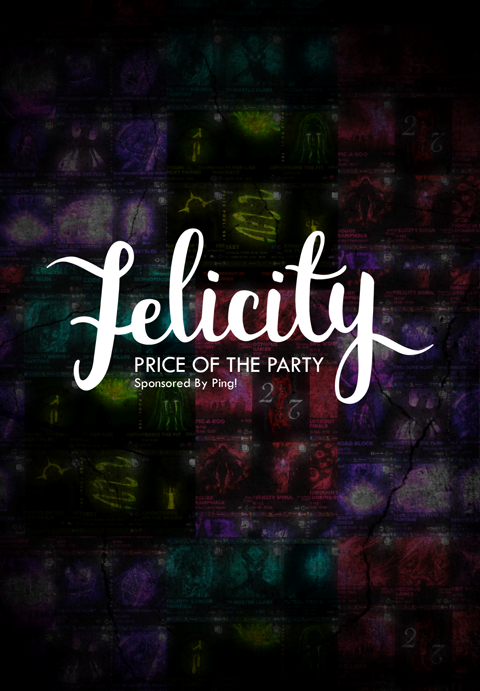
Felicity. It was the golden word we had heard long before we even stepped foot on campus. Our first college fest. The stories we heard from seniors and the glimpses we caught online — painted college life as nothing short of a dream. We looked forward to it with hope, with excitement, with that first-year eagerness to be part of something big. So when the Felicity team forms finally rolled out, we didn’t hesitate. Design team? Absolutely. Social media team? Sign us up. Videography team? Why not?
We volunteered because we thought this would be our chance to be a part of something bigger than ourselves. This wasn’t just about a fest – it felt like our chance to discover what we loved, to learn new skills, to contribute, and to carve out a space for ourselves in this chaotic college life. We weren’t here to just observe – we were here to build. We didn’t go into it blindly — we chose to be here. But here’s the catch: we expected something that would allow us to try, to explore, to grow. Instead, what started as an exciting opportunity quickly turned into a demanding job, one with never-ending to-do lists and stressful deadlines.
We thought we’d be building a community, gaining experiences that would shape us. We expected an exciting adventure. Instead, it became a grind. Just endless pressure, a feeling of being stuck in one role, and worst of all — the realization that no matter how hard we worked, it still wouldn’t be enough. In the beginning, it was electric. All the late-night meetings, designing posters till 4 AM, reel shoots that go on forever, editing that one frame for the millionth time, and the thrill of “we’re building something” together. It was fun, it was creative, and we were all in. But as deadlines piled on, pressure built, and panic set in, that once-exhilarating experience morphed into something else altogether. Even though we chose to join, the reality wasn’t what we had hoped for.
Gradually one of the things that we started noticing is that just because we showed up, our presence became a given. When you say yes once – to a task, to a meeting, to helping out – it somehow becomes a green signal for everything. Suddenly, your time isn’t your own. You’re expected to be there in every meeting, help resolve every crisis, be part of every last-minute fix because you happen to be around and reliable. We were excited, hopeful and buzzing with passion. And that passion? It was taken away. Used. Exploited. No balance – just relentless work dumped on our shoulders because we said yes once.
But time is not infinite. And effort isn’t free. It came at the cost of us, headaches, exhaustion, anxiety, skipped meals, sleepless nights. And we didn’t even have time to notice. Until we finally crashed.
The idea that “you’re good at this, so you’ll keep doing only this” is draining. It traps you. The more you deliver, the more you’re expected to. And not because people ask, but because it becomes assumed that you’ll handle it.
There’s no pause, no check-in, no “Are you up for this?” There is just endless assigning of tasks. It felt like we were working for a corporation. Long hours, no breaks, no credits, and no reward. Just people expecting you to deliver more. And smile while doing it.
And over time, the thing you once enjoyed becomes the thing you resent. Not because you hate the work. But because you were never allowed to grow around it. You were just needed inside it.
You try to explore another area, volunteer in a different team, learn something new, and you’re pulled right back into it. “But you’re so good at X!” Yeah, we are. But we wanted to try Y. And Z.
We’re not asking for applause. We’re just saying: recognize that people have limits. That someone being responsible doesn’t mean they should carry the whole weight. That someone saying yes doesn’t mean they never get to say no.
It’s hard not to notice that it’s always the same handful of people doing the heavy lifting. The same faces in every meeting, handling every crisis, showing up every time. While others… don’t. Some people disappear, some never show up, and somehow that becomes normal. And we’re left asking—why is that okay?
Why is it accepted that only certain students will always “step up” and save the day when no one else shows up? And once you’re known as someone who’s “reliable,” you’re never allowed to take a step back. You’re expected to be everywhere, every time.
It creates an imbalance–not just in workload, but in opportunity. Because those who never get pulled in? They also never get the chance to learn, explore, or feel part of something bigger. And those who always do? They burn out.
Clearly, something needs to change! We need a culture that distributes responsibility better – that encourages wider participation and doesn’t rely on just a few to carry the whole fest. Not because we want less to do, but because everyone deserves a chance to be involved without being overwhelmed.
Because if we keep running this way – overloading the same handful of people – all we’ll end up with is a tired team, and no one left willing to step up next year.
Somewhere along the way, our schedules became so packed that we started letting go of other parts of our lives. We skipped meetups, left messages unread, and slowly disconnected from the people who keep us grounded. We were just stretched out too thin. And after a point, even conversations felt like another task on a growing list.
The idea of joining another event or team makes our skin crawl. The burnout is real. We’re not lazy — we’re drained. Going forward, we just hope that fest work can be intense without becoming all-consuming. Because contribution shouldn’t come at the cost of connection.
At the start, we were open to feedback. We told ourselves this was how we’d grow: by learning from our mistakes, by listening, by improving. But somewhere down the line, we stopped hearing it as an opportunity for growth. We started hearing it as pressure. We were tired. Even constructive criticism felt like an attack. Every comment, every suggestion – no matter how kind – started sounding like, “You’re not doing enough.” And it hurt because we had already given our all.
Suddenly, it wasn’t about doing better – it was about getting things done. Submitting on time. Meeting expectations. Avoiding mistakes at all costs because the energy to bounce back just wasn’t there anymore. We didn’t want to grow – we just wanted to survive. That’s what hurt the most. That we lost the very thing we signed up for. Growth became a checkbox. Feedback became noise. And all we wanted was for the deadlines to be fulfilled.
Here’s the part no one warns you about: by the time Felicity actually arrived, we were just… done. Not in a dramatic way, but in an “all we want is sleep” kind of way. We were just so drained from the weeks of prep, meetings, last-minute changes, and endless follow-ups that we had nothing left to give. While others were out there laughing, vibing, we were dragging ourselves from one event to the next, trying to capture moments for social media, barely able to register the joy around us. It wasn’t that we weren’t invited to the celebration – we just didn’t have the energy to show up for it. Our fest didn’t feel like a reward. It felt like a finish line we crawled across.
Despite it all, there was a silver lining. Amidst all the chaos, there were moments in Felicity that genuinely felt rewarding. As first-years still finding our place in college, being part of something this big gave us a sense of belonging. We weren’t just watching from the sidelines anymore – we had a role, a team, a purpose. There was something quietly powerful about late-night brainstorms, the collective stress that somehow turned into laughter, and the small wins we celebrated like victories. Even in the mess, there was pride – in the designs we created, the events we helped run, and the ideas we helped come to life. It wasn’t perfect, but it taught us more than a lecture ever could: how to solve problems under pressure, manage responsibilities, and work with people who barely knew each other before this fest began. Sure, it was exhausting – but in between all that, we built connections, confidence, and maybe even a version of ourselves that was more capable than we thought. And those fleeting moments – when things just clicked, when the crowd cheered, or when someone said “good job” – reminded us why we showed up in the first place.
We do believe in fests. We still want to be a part of them. All we ask is that it does not come at the cost of our health, energy, or enthusiasm. Because when people are treated like team members and not just manpower, they bring so much more to the table – willingly and sustainably.
And that’s what we hope next year brings – not less involvement, but better involvement.
Let people grow into their roles. Let them try, fail, step back, and return. That’s how real involvement should feel. And we look forward to seeing just that next time around. We hope to be a part of a Felicity that rewards not just presence, but potential, where effort is seen, growth is nurtured, and joy is shared by all who build it.

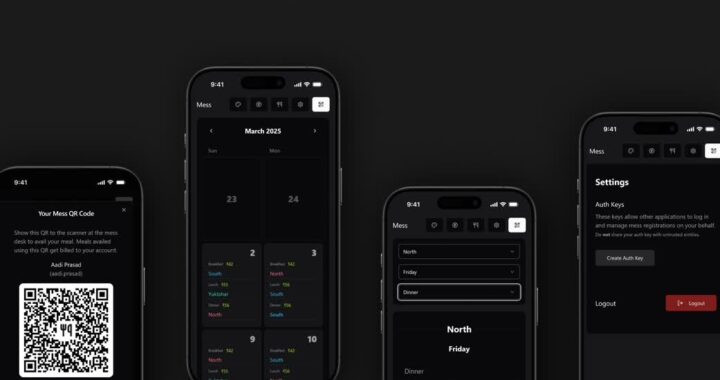 Have you tried turning the mess off and on again?
Have you tried turning the mess off and on again? 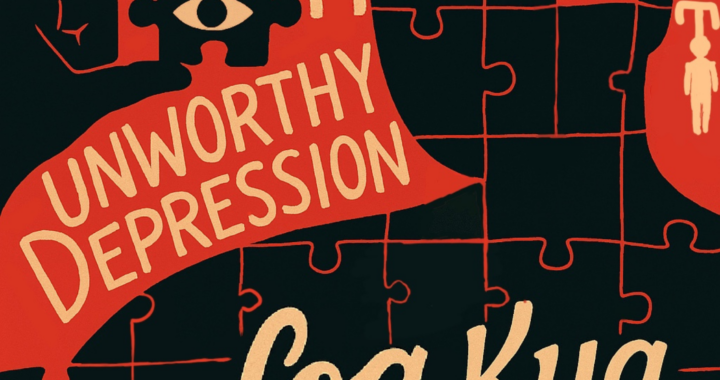 Log Kya Kahenge?
Log Kya Kahenge? 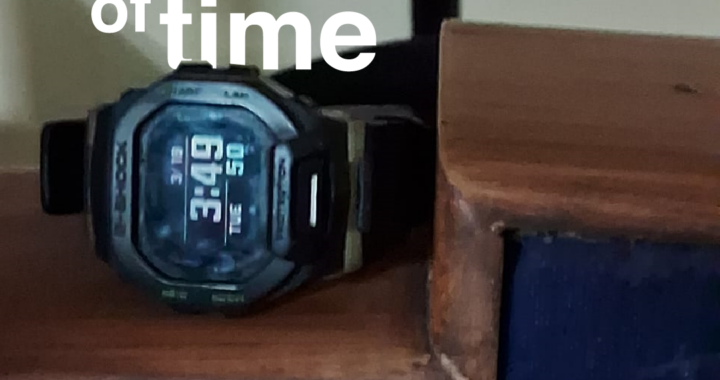 The river of time
The river of time 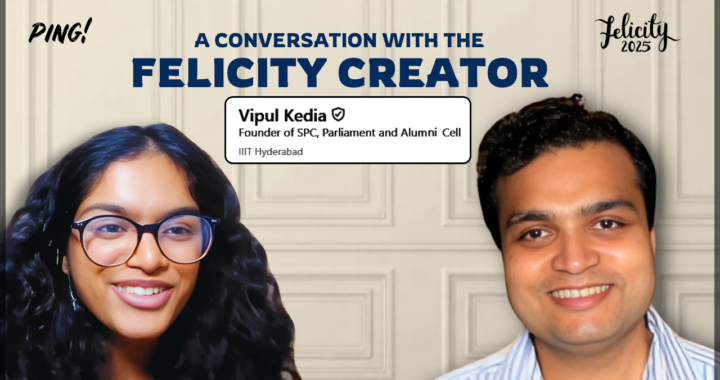 Vipul Kedia on building Felicity | The story of how it all began…
Vipul Kedia on building Felicity | The story of how it all began… 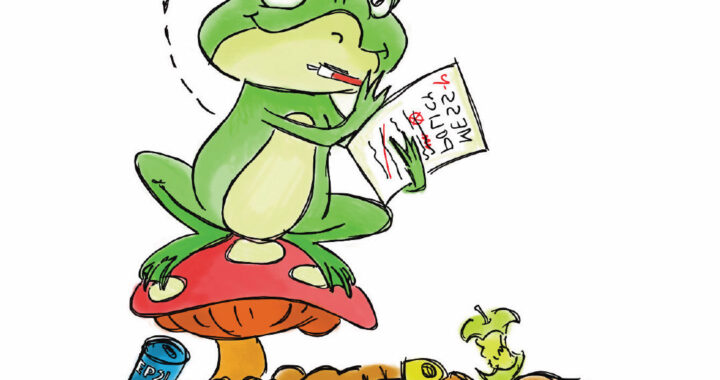 We Are So Cooked
We Are So Cooked 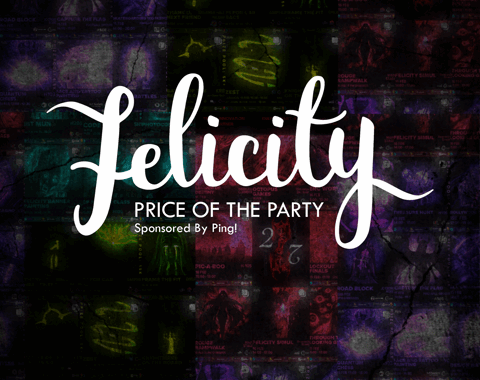 Felicity: The Price of the Party
Felicity: The Price of the Party  Mama, Put My GPTs in the Ground
Mama, Put My GPTs in the Ground